 In English, there are several different types of questions (also known as interrogative sentences) that you can ask.
In English, there are several different types of questions (also known as interrogative sentences) that you can ask.
Each elicits a slightly different response and is structured in a certain way. In this article, we’ll go over the following types of interrogative structures:
- Yes-no questions
- Choice questions
- Wh-questions
- Question tags
- Indirect scrquestions
- Rhetorical questions
As we go over these, make sure to pay special attention to two things: word and intonation. These can be the hardest things to keep track of when asking questions in English.
1. YES-NO QUESTIONS
The simplest type of question in English is the yes-no question. Very simply, it’s a type of question that expects a YES or NO as a response (though not limited to that). Take a look at the following statement:
- It is going to be cold tomorrow.
Now, let’s change it into a yes-no question:
Is it going to be cold tomorrow?
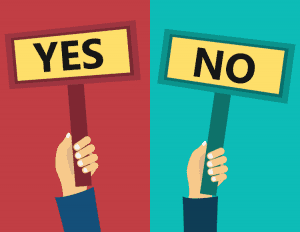 There are two things to note here. One, which you can’t know simply by reading this on a screen, is that when asking this question, the speaker’s tone of voice rises at the end, as opposed to a normal falling pitch used during a declarative sentence.
There are two things to note here. One, which you can’t know simply by reading this on a screen, is that when asking this question, the speaker’s tone of voice rises at the end, as opposed to a normal falling pitch used during a declarative sentence.
The second is the change in the word. When a declarative sentence becomes a yes-no question, the subject and its corresponding auxiliary verb switch (in other words, they become inverted).
Therefore, IT IS denotes a declarative, while IS IT denotes a yes-no question. Here are some other examples of yes-no questions:
- Are you going to take the car today? (You’re going to take the car today.)
- Can you understand Cantonese? (You can understand Cantonese.)
- Would he mind switching seats with me? (He would mind switching seats with me.)
- Should I leave my things here while we’re gone? (I should leave my things here while we’re gone.)
- Will we be stopping by the gas station later? (We’ll be stopping by the gas station later.)
Now, look at the following question:
Do you speak English?
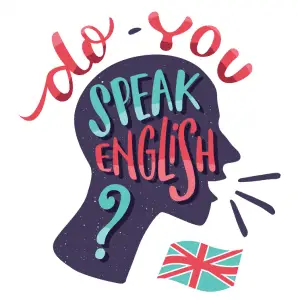 The corresponding declarative sentences for this is: YOU SPEAK ENGLISH. However, in a yes-no question, we need to add the verb TO DO because an inversion must occur between the subject and an auxiliary verb.
The corresponding declarative sentences for this is: YOU SPEAK ENGLISH. However, in a yes-no question, we need to add the verb TO DO because an inversion must occur between the subject and an auxiliary verb.
So, if you want to change YOU SPEAK ENGLISH into a question, you must first add the auxiliary TO DO (YOU DO SPEAK ENGLISH), and then make the inversion (DO YOU SPEAK ENGLISH?). It would sound weird for you to ask, SPEAK YOU ENGLISH? or YOU SPEAK ENGLISH?
Here are more examples of yes-no questions with the added TO DO auxiliary:
- Do you like chocolate?
- Does everything make sense?
- Do I sound annoying when I talk?
- Did Julie just walk out of the room?
2. NEGATIVE YES-NO QUESTIONS
Yes-no questions can also contain the word NOT, which would come after the subject in the question. For example:
Do you not have any money?
 Answering this kind of question, however, can be tricky. In this situation, if you want to confirm that you have no money, you would say, NO. If you answered with a YES on the other hand, this will probably confuse the person who asked the question, and they will probably not know what you mean until you clarify your answer.
Answering this kind of question, however, can be tricky. In this situation, if you want to confirm that you have no money, you would say, NO. If you answered with a YES on the other hand, this will probably confuse the person who asked the question, and they will probably not know what you mean until you clarify your answer.
This may sound counterintuitive to many foreigners, and I find it to be a huge inconvenience of the English language.
A: Do you mind spotting me for dinner? (Normal yes-no question)
B: Yeah, sure. Do you not have any money? (Negative yes-no question)
A: No.
B: Okay, just pay me back later.
A: Do you mind spotting me for dinner?
B: Yeah, sure. Do you not have any money?
A: Yeah.
B: (Confused at A’s answer) Huh? So you do or you don’t have money?
A: I don’t.
3. UNINVERTED YES-NO QUESTIONS
So far, inversions seem pretty crucial to yes-no questions (and most questions in English). There are however, yes-no questions where an inversion does not occur.
A: What are you doing this summer?
B: I’m going to Brazil.
A: Wait, you’re going to Brazil? My friend’s gonna be there too!
B: Oh, no way!
In this situation, Speaker A is asking a question not because he wants information, but because he is confirming something he just heard out of surprise. You could still respond to this type of question with a YES or a NO, but it’s not necessary, unless the speaker is trying to confirm that they heard something correctly.
For example, if you think you misheard a piece of information, you can restate it in the form of a question as a sign that you didn’t hear it very clearly.
A: What are you doing this summer?
B: I’m going to Brazil.
A: (Didn’t quite catch what B said) Wait, you’re going to Brazil?
B: Yeah.
A: Oh, that’s so cool!
This type of uninverted yes-no question can also come in the negative form.
A: I’m going to stop by Starbucks. Do you want anything?
B: No, I’m fine. I don’t like coffee.
A: Wait, you don’t like coffee? I can’t go a day without it!
4. CHOICE QUESTIONS
 A type of question that builds off from the yes-no question structure is the choice question, which asks the other person to choose between two (or more) presented options. These options are connected using the conjunction OR.
A type of question that builds off from the yes-no question structure is the choice question, which asks the other person to choose between two (or more) presented options. These options are connected using the conjunction OR.
- Do you like chocolate or vanilla better?
- Are you going to drive or do you want me to?
- Is it pronounced “care-uh-mel” or “car-mull”?
Another way to ask a choice question is to ask a wh-question followed by stating two or more options. We’ll get into more detail about wh-questions later.
- Which do you like better? Chocolate or vanilla?
- What do you prefer? That I drive or that you drive?
- Which way is it pronounced? “Care-uh-mel” or “car-mull”?
IS IT REALLY A CHOICE QUESTION?
Sometimes, a yes-no question that happens to contain an OR might be confused for a choice question. For example, pretend that the following is a conversation for text:
A: do you want to bring Remi or Alice to dinner?
B: umm I guess Remi?
A: lol I wasn’t asking you to choose. I was asking if you wanted to bring either of them. You can bring both if you want.
B: ohh okay. I’ll ask them then lol
Here, Speaker A asked a yes-no question about whether speaker B wanted to bring one of his friends to dinner, but Speaker B confused it for a choice question. A clarification was therefore needed.
If you see a choice question on paper or through text, you can use context to help determine whether it’s a true choice question or not. When speaker, however, there’s an easy way to distinguish between a choice question and a yes-no question: tone of voice.
As you may recall, the speaker’s voice usually rises at the end of a yes-no question. This goes for yes-no questions that contain the word OR as well. Choice questions, meanwhile, will have a falling pitch at the end (while the speaker presents the second option in the question).
This is hard to demonstrate in a written article, but if you hear these types of questions spoken out loud, you should be able to note this important difference. In the dialogue above, however, there was no tone of voice to indicate what kind of question was being asked, since the conversation was over text. Those are moments when ambiguities like this can easily occur.
5. WH-QUESTIONS
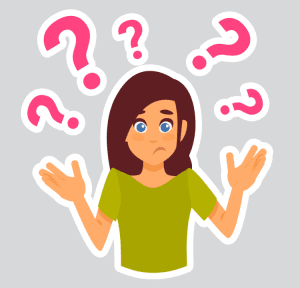 While yes-no questions are usually answered with a YES or NO (or some variation of these words, e.g. YEAH or NAH), a wh-question can expect any kind of information as a response. Wh-questions begin with WH-WORDS, which signify that the speaker is asking a question.
While yes-no questions are usually answered with a YES or NO (or some variation of these words, e.g. YEAH or NAH), a wh-question can expect any kind of information as a response. Wh-questions begin with WH-WORDS, which signify that the speaker is asking a question.
Here is a list of wh-words (this includes HOW, which doesn’t begin with a WH). Also note that different wh-words fall under different parts of speech, which will affect the way they are used in sentences.
- Who (asks about a person)—noun
- Whose (asks about possession)—adj
- Whom (variation of “who” depending on its case)—noun
- What (asks about a thing, sometimes a quality)—noun/adj
- When (asks about a time)—adv
- Where (asks about a place)—adv
- Why (asks about a reason)—adv
- How (asks about a method or quality)—adv
- How much/many (asks about an amount)—adj/adv/noun
- How + adj/adv (asks about an extent to which something is true)—adv
- Which (asks about a small set of choices)—adj/noun
Comprehensive List of Question Words
The following will explain different ways to construct different wh-questions, as categorized by parts of speech. Notice that many contain an inverted auxiliary verb and subject, just like in yes-no questions.
NOUN AS THE SUBJECT
Wh-words: who, what, how much/many, which
Formula:
Wh-word + rest of the sentence
(Notice that the wh-word simply replaces the subject of the sentence)
Examples:
- Who’s going to take care of the dog while we’re gone? (The neighbor is going to take care of the dog while we’re gone.)
- Who cooks the most in your family? (My mom cooks the most in my family.)
- Who ate the rest of my pizza? (Rohit ate the rest of your pizza.)
- What’s going on? Nothing’s going on.
- What’s on TV right now? ‘Keeping Up with the Kardashians’ is on TV right now.
NOUN AS THE DIRECT OBJECT
Wh-words: who(m), what, how much/many, which
Formula:
Wh-word + auxiliary verb + subject + rest of the sentence
Examples:
- Who did they end up choosing for the lead role?
- They ended up choosing Erin for the lead role.
- Whom specifically will this new policy affect?
- This new policy will affect the working class, specifically.
- Who are you calling an idiot?
- I’m calling you an idiot.
- What are you cooking for dinner?
- I’m cooking pasta for dinner.
- Which do you like better? Jeans or sweats?
- I like jeans better.
Note: To be grammatically correct, the pronoun WHO should take the form WHOM if it is the direct or indirect object of the sentence. This, however, is usually reserved for formal writing, and the word WHOM in everyday speech is falling out of usage.
Often, it will sound much more natural to use WHO, no matter what case it takes (the case is the grammatical role a noun plays in relation to other nouns, e.g. subject, direct object, indirect object, etc.).
NOUN AS A COMPLIMENT
Wh-words: who, what, how much/many, which
Formula:
Wh-word + copula + subject
(The term COPULA simply refers to the linking verb TO BE)
Examples:
- Who are all these people in the streets?
- (All these people in the streets are protestors.)
- Sorry, who are you?
- (I’m Regan.)
- Who are you going to be in the play?
- (I’m going to be a supporting character in the play.)
- What is photosynthesis?
- Photosynthesis is a process by which plants make their own food.
- Which is the best option out of the two?
- The best option out of the two is the first one.
NOUN WITH A PREPOSITION
Wh-words: who, what, how/much/many, which
Formulas:
Wh-word + auxiliary verb + subject + rest of the sentence + preposition (sounds more casual)
Preposition + wh-word + auxiliary verb + subject + rest of the sentence (sounds more formal)
(If you are beginning the sentence with the word WHO, it’s normal to keep it as it is. However, if you choose to precede it with a preposition, it’s best to change WHO to its object form WHOM.)
Examples:
- Who were you on the phone with?
- (I was on the phone with Jennifer.)
- With whom was Mr. Ramos seen with earlier this morning?
- (Mr. Ramos was seen with his wife earlier this morning.)
- Who are you sending that package to?
- (I’m sending this package to my cousin.)
- What is this world coming to?
- (Rhetorical question)
NOUN AS THE SUBJECT OF A SUBORDINATE CLAUSE
Wh-words: who, what, how much/many, which
Formula:
Wh-word + auxiliary verb + subject + rest of the independent clause + rest of the subordinate clause
Examples:
- Who do you think should be president?
- I think Elizabeth Warren should be president.
- Who did you say tends to gossip a lot?
- I said that Amity tends to gossip a lot.
- Who does Pierre want to win the World Cup?
- Pierre wants Barcelona to win the World Cup.
- What do you think will happen if I skip class again today?
- I think the professor will notice.
- Which do you think tastes better? Soymilk or almond milk?
- I think almond milk tastes better.
ADVERB
Wh-words: when, where, why, how, how much, how + adv
Other possibilities: how many times, which way, what time, etc.
Formula:
Wh-word + auxiliary verb + subject + rest of the sentence
Examples:
- When are you flying back to the States?
- I’m flying back to the States on the 5th.
- When are you walking over to the party?
- I’m walking over to the party in an hour.
- When did you start wearing makeup?
- I started wearing makeup about a year ago.
- Where did you go while you were in China?
- While I was in China, I went to Beijing and Shanghai.
- Where on the map does this train go?
- This train goes to Wilmington on the map.
- Why do you hate cats so much?
- I hate cats so much because they scratch everything.
- Why do stars twinkle?
- Stars twinkle because of the way their light travels through our atmosphere.
- Why did your mom come to visit you last weekend?
- My mom came to visit me last weekend to celebrate her birthday.
- How are you?
- I’m fine, thank you.
- How did you finish your food so fast?
- I finished my food that fast by not talking.
- How can I become more productive?
- You can become more productive by meditating.
- How many times did you go on that rollercoaster?
- I went on that rollercoaster five times.
- How nicely do I need to dress for tonight?
- You need to dress nice enough for tonight.
- How well does she speak in public?
- She speaks decently well in public.
- Which way should I go to get to the market?
- You should go down the main road to get to the market.
- What time does the sun usually set nowadays?
- The sun usually sets around six nowadays.
ADVERB WITH A PREPOSITION
Wh-words: when, where
Formulas:
Wh-word + auxiliary verb + subject + rest of the sentence + preposition (sounds casual)
Preposition + wh-word + auxiliary verb + subject + rest of the sentence (sounds formal)
Examples:
- When do you plan on leaving the city by?
- I plan on leaving the city by 9 p.m.
- When will the after party go until?
- The party will go until three in the morning.
- By when do you think you’ll finish your application?
- I think I’ll finish my application by next week.
- Where did you pass by on the way here?
- I passed by the golf course on the way here.
- From where does the first chapter of the dissertation begin?
- The first chapter of the dissertation begins after the roman numerals.
ADVERB IN A SUBORDINATE CLAUSE
Wh-words: when, where, why, how, how much, how + adv
Formula:
Wh-word + auxiliary verb + subject + rest of the main clause + rest of the subordinate clause
Examples:
- When do they say is the best time to buy plane tickets?
- They say the best to buy plane tickets is 47 days before the flight.
- When do you think we should have lunch?
- I think we should have lunch around noon.
- Where did you say is your favorite restaurant?
- I said my favorite restaurant is Jin Ramen.
- Where do you think is the best place to live in California?
- I think the best place to live in California is the Bay Area.
- How much do you think you’re going to eat?
- I think I’m only going to eat a little bit.
- How quickly should I expect to be out of this meeting?
- You should expect to be out of this meeting within an hour.
ADVERB WITH AN ADJECTIVE
Wh-words: how + adj
Formulas:
Wh-word + adj + copula + subject
Wh-word + adj + OF + noun phrase + normal rules for nouns that were discussed previously
Wh-word + adj + auxiliary verb + subject + rest of the sentence (with a linking verb)
Examples:
- How scary is the haunted house?
- The haunted house isn’t that scary.
- How tall is your boyfriend?
- My boyfriend is six feet tall.
- How cool is that?
- (Rhetorical question)
- How big of a space are we going to have for the performance?
- We’re going to have a fairly big space for the performance.
- How cheap of a souvenir are you looking to buy?
- I’m looking to buy a souvenir less than twenty dollars.
- How romantic did you expect that movie to be?
- I didn’t expect that movie to be too romantic.
- How cold is it going to be outside?
- It’s going to be very cold outside.
- How casual do you want this paper to sound?
- I want this paper to sound a little casual but not too much.
ADJECTIVE WITH A NOUN
Wh-words: What, whose, which
Formula:
If the wh-word you’re using is an adjective modifying another noun, that noun follows the normal rules for nouns that were discussed previously.
Examples:
- Which car model did you end up buying?
- I ended up buying a Toyota.
- Which runner on the team has the best stamina?
- Sophie has the best stamina on the team.
- Which one should I pick?
- You should pick the left one.
- What kind of laptop is the best for computer games?
- PCs are the best for computer games.
- What brand of clothing do you usually like to buy?
- I usually like to buy Zara.
- What person would ever buy a flight for four in the morning?
- Rhetorical question
- What area did you go to while visiting Brooklyn?
- I went to Williamsburg while visiting Brooklyn.
DETERMINER
Wh-words: how much/many
Formula:
A wh-word that serves as a determiner, whether or not it is modifying a noun, follows the normal rules for nouns that were discussed previously.
Examples:
- How much cash do you have in your wallet?
- I have about twenty dollars in my wallet.
- How many licks does it take to get to the center of a lollipop?
- It takes many licks to get to the center of a lollipop.
A: Not a lot of people came to the reception.
B: Really? How many showed up?
A: About twenty showed up.
6. INTONATION
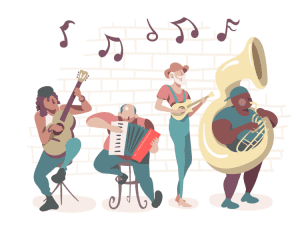 As we have seen before, intonation is a very important part of asking questions in English. When asking yes-no questions, the pitch of the voice usually rises at the end.
As we have seen before, intonation is a very important part of asking questions in English. When asking yes-no questions, the pitch of the voice usually rises at the end.
With wh-questions on the other hand, the tone of voice is usually identical to that of a declarative sentence. The main indicator of the “interrogativeness” of the question is instead the wh-word.
There are, however, times when the pitch does rise at the end of a wh-question. This usually happens when the speaker wants to confirm a piece of information, either out of surprise, lack of hearing, or forgetfulness.
A: What are you wearing to the dinner tonight?
B: A dress shirt.
A: Wait, what are you wearing? (Rising pitch)
B: (Enunciates) A dress shirt.
A: Oh, I thought you said a “dresser.”
A: Is Quinn coming with us tonight?
B: No, I think he has plans with his girlfriend.
A: What? Who is his girlfriend? (Pitch rises out of surprise)
B: Lina. They just started dating like two weeks ago.
Native speakers also tend to raise their pitch when asking extremely common questions like, WHERE ARE YOU FROM? and WHAT TIME IS IT?, almost as if these questions are secondhand remarks.
A: Do you have any plans for the break?
B: Yeah, I’m going back home for most of it.
A: Oh, cool. Where are you from, by the way? (Pitch rises to make the question seem casual)
B: Texas.
Sometimes, speakers can even choose to sound annoyed by raising their pitch at the end of wh-questions.
A: (Phone rings) Hello?
B: Hi, could I order a pizza for delivery?
A: I’m sorry, who is this? (Pitch rises out of annoyance)
B: Oh, I think I have the wrong number. Sorry.
A: Hey, do you have a boyfriend?
B: No, not at the moment. Why are you asking me this? (Pitch rises to signal that the speaker finds the question inappropriate.)
So far, we’ve seen wh-questions that all begin with a wh-word. Usually, the location where the wh-word’s part of speech would usually occur comes to the beginning of the sentence, accompanied by a subject-auxiliary inversion.
However, it’s possible for a wh-word to come in a position you would find in a normal, declarative sentence. When this happens, it serves the same functions as raising the pitch at the end of a wh-question—i.e., to show surprise or seek confirmation. Placing a wh-word in its declarative position is usually accompanied by a rising pitch as well.
A: What are you wearing to dinner tonight?
B: A dress shirt.
A: Wait, you’re wearing a what? (Rising pitch)
B: (Enunciates) A dress shirt.
A: Oh, I thought you said a “dresser.”
A: (Needs a reminder) Hey, you’re going where again this weekend? (Rising pitch)
B: To New York to visit my friend.
A: Oh, okay. For some reason, I thought you were going to Baltimore.
More for you:
A BIG List of Prefixes and Suffixes and Their Meanings
12 (All) English Tenses with Examples
List of Sentence Connectors in English with Examples!
7. ONE-WORDED WH-QUESTIONS
While wh-words can be used to construct fuller wh-questions, they can certainly be used by themselves in conversation. The same rules of intonation apply here, especially with the word WHAT which can often be said as an exclamation with a rising pitch.
A: Guess who I just ran into today.
B: Who?
A: Simon. I haven’t seen him in ages.
A: I’m going to do some shopping downtown soon.
B: Oh, when?
A: Probably around one o’clock.
A: Hey, I found your glasses.
B: What? (Rising pitch out of surprise) Where?
A: Under the couch.
A: Guess what.
B: What? (Normal falling pitch)
A: I’m moving to Denver in the spring.
B: Denver? Why?
8. QUESTION TAGS
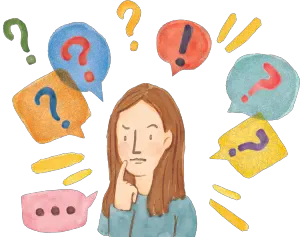 Question tags (sometimes called disjunctive questions), are small questions that appear at the end of sentences to seek confirmation from the other person. In other words, they expect the answer to be YES and are thus, a sort of variation of the yes-no question.
Question tags (sometimes called disjunctive questions), are small questions that appear at the end of sentences to seek confirmation from the other person. In other words, they expect the answer to be YES and are thus, a sort of variation of the yes-no question.
You might know this type of function from other languages, like Korean or Japanese, where question tags are represented through attached verb endings. In English, question tags are separate phrases that come at the end of statements in several forms.
One way to form a question tag is to take the subject (converted to a pronoun) and its corresponding auxiliary verb (if there is none, use the auxiliary verb TO DO) and form a negative yes-no question from them.
For example, IT IS will become ISN’T IT? and YOU CAN will become CAN’T YOU? Note that question tags are usually contracted. You could say something like IS IT NOT? or CAN YOU NOT? at the end of a statement, but it would sound strange.
Here are some examples of question tags:
- You’re old enough to drink, aren’t you?
- The president of the company retired last year, didn’t he?
- I should probably apologize, shouldn’t I?
Another common question tag is the word RIGHT. It, as well as any word that can be used to seek confirmation (no matter how casual), can be considered a question tag.
- You’re old enough to drink, right?
- It’s going to be a long car ride, huh?
- Brian’s gonna be covering your shift tomorrow, yeah?
You can also turn an entire sentence into a question tag by inverting the subject and auxiliary verb within the actual sentence, and similarly making it negative. Once again, always contract the auxiliary with the word NOT. Otherwise, the sentence will sound like a negative yes-no question, which we talked about earlier.
- Aren’t you old enough to drink?
- Didn’t the president of the company retire last year?
- Doesn’t he like romantic comedies?
9. INDIRECT QUESTIONS
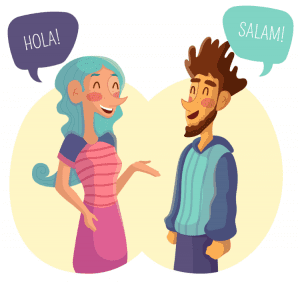 Indirect questions, also known as embedded questions, are questions not asked outright but nested within another sentence/question.
Indirect questions, also known as embedded questions, are questions not asked outright but nested within another sentence/question.
There are two main types of indirect questions, both with different functions: polite questions and reported questions.
10. POLITE QUESTIONS
Instead of asking a question directly, you can make it more polite beginning with one of the following phrases:
- Could you tell me…?
- Do you know…?
- I was/am wondering…
- Do you have any idea…?
- I’d like to know…
The actual question you want to ask thus becomes embedded within a main statement. Asking a question indirectly like this is extremely common for making requests, both with strangers and with friends.
To make a wh-question more polite, use the following formula:
Main question + wh-word + rest of the question (no inversion)
Examples:
- Do you have any idea when the next bus arrives?
- (When does the next bus arrive?)
- Do you know where the bathroom is?
- (Where is the bathroom?)
- Could you tell me how this remote works?
- (How does this remote work?)
Notice that while a direct wh-question contains an inversion, an embedded wh-question does not. The subject and auxiliary verb do not switch, and usually, you will end the question with the verb.
This is a very common mistake that foreigners make when speaking English and is the reason why inversions can be so hard to keep track of. The following indirect questions, which contain inversions, are therefore incorrect:
- Could you tell me when does the next bus arrive?
- Do you know where is the bathroom?
- Do any of you know how does this remote work?
To make a yes-no question indirect, use one of the following formulas. Once again, no inversion of the subject and auxiliary verb should take place.
Main question + IF + rest of the sentence (+ OR NOT)
Main question + WHETHER (OR NOT) + rest of the sentence
Main question + WHETHER + rest of the sentence (+ OR NOT)
Examples:
- Do you know if Daniel is lactose intolerant (or not)?
- I was wondering if you could drop me off at work later.
- I’d like to know whether or not it’s possible to open an account.
11. REPORTED QUESTIONS
You may have heard of the term REPORTED SPEECH or INDIRECT STATEMENT, which looks something like this:
- I heard that the company’s having an open bar tonight. (The company’s having an open bar tonight.)
- Des told me that he started working at the bookstore. (Des started working at the bookstore.)
- I warned you that the roads were slippery! (The roads are slippery.)
Questions can similarly be reported, or restated, in the form of an indirect question. The same rules apply here as with polite questions.

Wh-questions do not contain inversions, and yes-no questions are embedded beginning either with an IF or a WHETHER (with an optional OR NOT). Choice questions can also be embedded, beginning with the word WHETHER.
- He asked me suspiciously what my favorite dessert was.
- I’ll ask her where we should drive in a second.
- The professor queried the student why he wasn’t showing up in class.
Notice that when the main clause, which contains a verb like ASK, is in the past tense, the reported question is also placed in the past tense. This is known as backshift, and is often required for tense consistency. Notice the difference between these reported questions:
- I’ll ask Kenny if he has any spare phone chargers.
- I’m asking Kenny if he has any spare phone chargers.
- I asked Kenny if he had any spare phone chargers. (Backshift occurs)
- I was asking Kenny if he had any spare phone chargers. (Backshift occurs)
12. OTHER INDIRECT QUESTIONS
While reported questions are often embedded within clauses that contain verbs like ASK or QUERY not all indirect questions have to be like this. Many are embedded within main clauses that contain verbs like the following:
- To tell
- To wonder
- To know
- To understand
- To sense
- To predict
- To say
- To explain
- Etc.
The same rules of backshift and inversion apply.
- I wonder where my watch could be.
- I don’t think I understand what you’re talking about.
- I can’t tell whether you’re being serious or sarcastic.
- Can animals sense if it’s going to rain?
- My mom can always predict when I’m going to call her.
- Nobody should ever tell the boss what to do.
13. RHETORICAL QUESTIONS
 Rhetorical questions cannot be summed up into one grammatical category. Rather, they are questions that don’t expect an answer and are used for mostly rhetorical or stylistic purposes.
Rhetorical questions cannot be summed up into one grammatical category. Rather, they are questions that don’t expect an answer and are used for mostly rhetorical or stylistic purposes.
Almost any question, therefore, can be considered a rhetorical question in the right context. That being said, here are some examples of common types of rhetorical questions:
“WHAT?”
Instead of literally asking what something is, the question WHAT? can simply be used to express surprise or disbelief, or indicate that you find something remarkable. Because of this, it’s sometimes written with an exclamation point instead of a question mark.
A: My boyfriend just proposed to me!
B: What! That’s amazing, congratulations!
A: Hey, I think I’m gonna have to cancel on dinner tonight.
B: What…?
A: I’m sorry, something came up.
“ARE YOU KIDDING ME?” / “ARE YOU SERIOUS?”
These kinds of questions similarly express shock or disbelief. But even though they’re rhetorical, it’s often normal to answer with a YES or NO
A: I think all of the project files got deleted somehow.
B: What? Are you kidding me?
A: No. I don’t know where they went.
B: This is a disaster…
A: According to the weather, it’s supposed to snow all next week.
B: Are you serious? Driving’s going to be a nightmare.
Here are some alternatives to this type of rhetorical question you can use:
- Seriously?
- (Are you) for real?
- Are you joking?
- Is this real?
More for you:
7 Simple Examples of Business Email Writing in English
1000+ Most Popular English Idioms and Their Meanings
Family Relationships in English And Phrases About Family
14. TAG QUESTIONS THAT AREN’T REALLY TAG QUESTIONS
 These are statements like ISN’T HE CUTE! or ISN’T THIS GREAT! They look like tag questions, except they differ in three main ways: They don’t rise in pitch, they end in a period rather than a question mark, and they don’t expect an answer of confirmation in return.
These are statements like ISN’T HE CUTE! or ISN’T THIS GREAT! They look like tag questions, except they differ in three main ways: They don’t rise in pitch, they end in a period rather than a question mark, and they don’t expect an answer of confirmation in return.
Not every statement can be turned into this kind of rhetorical question, and some are usually perceived as sarcastic, while others are not. Here are some examples:
- Isn’t he adorable! (Often used with dogs, babies, etc.)
- Aren’t you smart. (Sarcastic—used to mean that somebody is a showoff)
- Isn’t that neat!
- Isn’t that cool!
- Isn’t that exciting!
- Isn’t that (just) great. (Sarcastic—used to describe an unfavorable situation)
- Isn’t that fantastic. (Similarly sarcastic)
A: I just got on A on my paper!
B: Well, aren’t you smart.
A: Oh, stop. What did you get?
B: I’d rather not say.
A: Do you want to see a picture of my dog?
B: Sure. Aw, isn’t she precious!
A: Yeah, she’s actually having puppies soon.
B: Well, isn’t that exciting!
A: The plumber just called. He says he’s going to be an hour late.
B: Well, isn’t that just great.
A: Yeah, unprofessional if you ask me.
15. QUESTIONS USED TO COMPLAIN
A common rhetorical question is one meant to complain a person, thing, or situation.
- Why does this store have to close so early?
- Who do you think you are?
- Why do you have to act like such a child?
- When can I catch a break around here?
- Why does everything always have to happen to me?
16. QUESTIONS THAT THE SPEAKER WILL ANSWER
Some questions are presented specifically so that the speaker can answer it themselves. These are often found in the context of a speech, essay, article, advertisement, or anything else meant to make some persuasive argument.
- Many people consider justice to be a fundamental virtue. But what exactly is “justice”? Different philosophers have found several answers…
- What’s the best way to lose weight fast? The answer might surprise you…
- Why do we call it “social media” when all it does is isolate people? Perhaps we should come up with a better name for it…




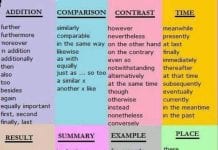

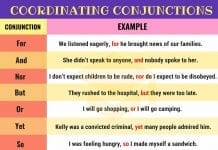
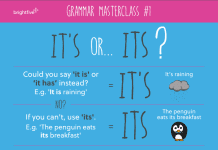
















thanks. it was handy
Great information. Loved it.
Hello!So joyful to discover and join your rich website.
Thank you so much for your kind words! 🙂
Wow! Isn’t this great? This’ professional if you ask me. Thank you Anastacia for this profound lecture. I’ve taken close to two hours to make sure I digest everything. This’ really awesome.
Wow. 2 hours? That’s huge. ?
Thank you so much for your kind words.
Great job! I found it easy to follow and to the point.
Thank you so much!
This is a very helpful site for mastering English. Thanks a lot
Thank you Theresia!
I would like to say “Thank You” for your support.